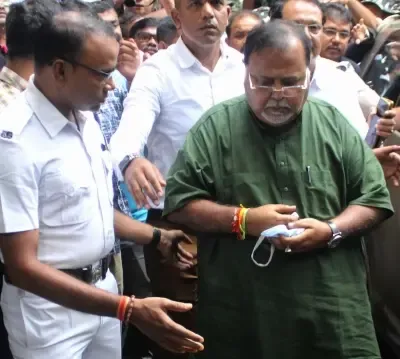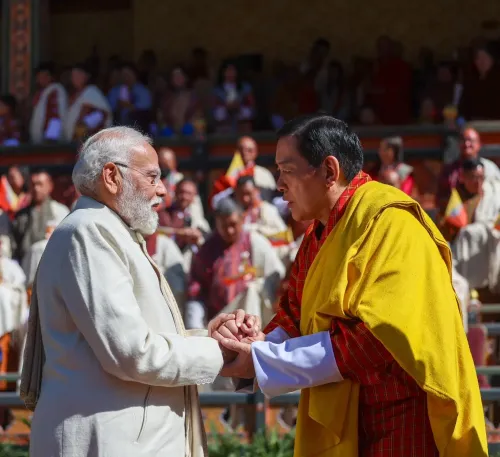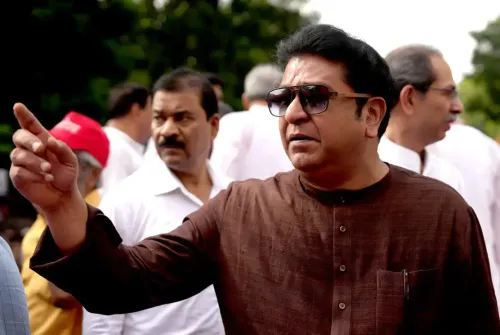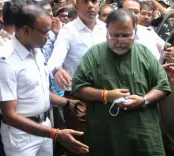UPSC Examinations: Madhya Pradesh High Court Rejects EWS Age and Attempt Relaxation Requests
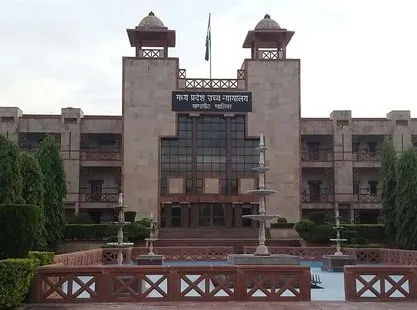
Synopsis
Key Takeaways
- The Madhya Pradesh High Court ruled against age relaxations for EWS candidates.
- No increase in attempts for State OBC candidates was granted.
- The court clarified that EWS lacks legal provisions for such benefits.
- Petitions were filed by Aditya Narayan Pandey and others.
- UPSC preliminary exam scheduled for May 25, 2025.
Jabalpur, March 18 (NationPress) In a landmark decision, the Madhya Pradesh High Court rejected several petitions seeking age relaxation for Economically Weaker Section (EWS) candidates participating in the UPSC examinations.
The court also dismissed requests for increased attempts for candidates from castes or communities listed in the State's OBC (Other Backward Classes) but not recognized in the Central List for the upcoming CSE-2024 and CSE-2025 examinations conducted by the Union Public Service Commission (UPSC).
A bench comprising Chief Justice Suresh Kumar Kait and Justice Vivek Jain clarified that, unlike Scheduled Castes (SC), Scheduled Tribes (ST), and OBC, there are no provisions for such relaxations for EWS under the current legal framework.
“The judiciary’s role in these matters is confined to evaluating whether policies infringe upon fundamental rights or constitutional provisions. Courts lack the authority to mandate policy changes unless there is evident hostile discrimination,” the bench remarked.
The court also denied the request for nine attempts in the UPSC examination for State OBC candidates, similar to what is allowed for Central OBC candidates.
These petitions were submitted by Aditya Narayan Pandey from Maihar, Madhya Pradesh, along with several others advocating for concessions for EWS candidates.
Meanwhile, the UPSC preliminary examination for 979 vacancies is set to occur on May 25, 2025.
Kapil Sibal, senior counsel for the petitioners, asserted that the EWS category represents a unique class under the 103rd Constitutional Amendment. He contended that while SC, ST, and OBC candidates benefit from age relaxations and additional attempts in competitive exams, EWS individuals, facing similar hardships, are denied such advantages.
SD Sanjay, Additional Solicitor General for the Union of India, opposed the appeal. He stressed that reservations for SC, ST, and OBC under constitutional provisions are distinct from those for EWS as defined by the two Articles introduced by the 103rd Amendment.
He stated that “each category is unique,” and benefits for one group cannot be automatically transferred to another. The Government of India, following the 103rd Amendment, did not extend age or attempt relaxations to EWS candidates, indicating no constitutional mandate for uniform concessions. EWS reservations are restricted to individuals outside the SC/ST/OBC reservations and with an annual family income below Rs 8,00,000, according to the constitutional framework. Ultimately, both Central and State Governments have refrained from allowing age or attempt relaxations for EWS candidates, he reasoned.
“Constitutional courts, during judicial reviews, cannot force governments to grant such concessions unless clear discriminatory practices are identified,” the bench concluded.

